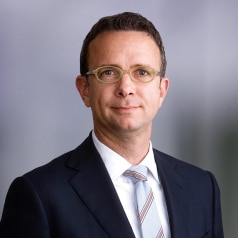Ministers at the international talks on clean energy in London announced several initiatives to accelerate global progress on the energy efficiency of appliances, recognizing that such actions can cut energy waste, reduce pollution, save money for consumers around the world, and ultimately help companies sell more products. Jan Brockmann, Chief Technology Officer in Electrolux, attended the meeting as part of a roundtable discussion on superefficient appliances.
The two-day meeting of energy ministers from 23 leading economies was cochaired by UK Energy Secretary Ed Davey and his US counterpart Steven Chu. Ministers pledged to improve the energy efficiency of appliances, such as refrigerators, as part of an initiative that could save consumers money over the next two decades.
“This is a great opportunity for Electrolux and good news for consumers. It’s also the right path to take to build a more sustainable future,” says Jan Brockmann.
Electrolux sustainability strategy is in line with accelerating the development of more efficient appliances that use less energy and water. The Group’s technology road maps are strongly geared toward sustainability.
“Within the next 5–10 years, appliances will be part of carbon-free households that use renewable energy like solar, wind and hydropower,” Brockmann explains. “In the long term, Electrolux will be developing appliances for homes that will be connected to a smart-grid environment and utility system.”
Promoting the benefits of superefficient appliances
At the meeting, Brockmann took part in a roundtable discussion on superefficient appliances together with clean energy ministers, senior business executives, and other stakeholders.
Participants discussed how governments and retailers can best work together to educate consumers about energy efficiency before they get to the store to make a purchase, and what is the best way to highlight efficiency and superefficiency in the appliance lineup (e.g., leveraging existing national and international labeling schemes and awards for superefficient products).
Overall, they agreed that standards, incentives and labels are the best way to drive forward energy efficient appliances and reduce carbon emissions.
“In Europe, for example, one fourth of appliances in consumer homes are 10 years old,” says Brockmann. “Our goal is to get consumers to buy new, state-of-the-art superefficient products that will save them money and are better for the environment.”
Today, Electrolux is pushing for transparent policymaking, labeling, and in some cases consumer-oriented incentive schemes—all which will drive retailers, manufacturers and ultimately drive growth.


